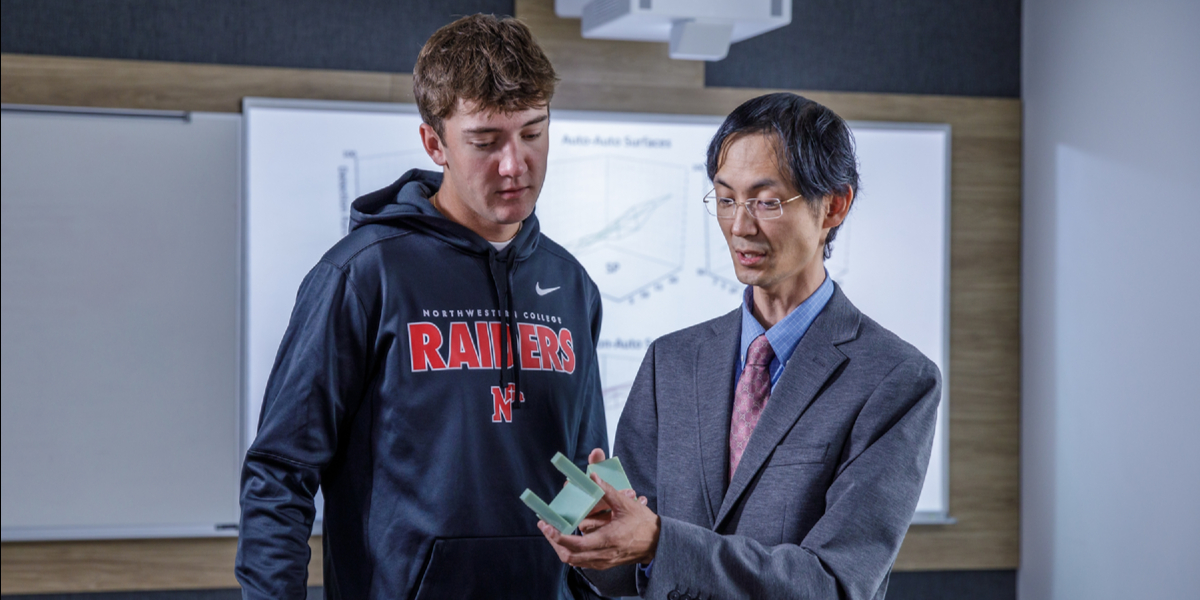Hired to launch Northwestern's engineering program, Dr. Young-Ji Byon has teaching, research and administrative experience on three continents.
Example to follow
Although Dr. Byon occasionally attended church when he was young, he resisted becoming a Christian because he’d never met a Christian who was good at math and science. That changed when he attended a weeklong summer camp for high school students and sat next to one of the camp’s guest speakers during lunch. The man was an engineering professor who had earned a Ph.D. from MIT and taught at Seoul National University. After the professor shared the gospel with him, Young-Ji gave his life to Christ and told God that he wanted to become an engineering professor and do the same for others.
Global experience
Dr. Byon was 14 when his parents emigrated from South Korea, where he was born, to Canada. After earning his Ph.D. in civil engineering from the University of Toronto, he did post-doctoral research at the University of Calgary and the University of Chile. Prior to joining Northwestern’s faculty, he spent 11 years at Khalifa University in the United Arab Emirates, one of the world’s top-100 engineering universities, where he was the associate chair of the department of civil infrastructure and environmental engineering. During that time, he helped launch Khalifa’s civil engineering programs and led its efforts to secure ABET accreditation. He also received a faculty excellence award from the university.
Accomplished researcher
Dr. Byon majored in mechanical engineering at the University of Toronto but switched to civil engineering for his master’s and doctoral degrees after seeing the science fiction movie Minority Report, which features a scene with autonomous vehicles and fully automated highways in the sky. His research field is geographic information systems, and his research focus is intelligent transportation systems—including connected and autonomous vehicles and deep-learning-based traffic control. He has managed grants totaling $2.8 million, published more than 50 articles in top international journals, and won a national research award for sustainable transportation from the United Arab Emirates.
The best prototype
Autonomously driven vehicles are inevitable, Dr. Byon says, as are intersections without signals, or “smart” intersections. Eventually cars will be able to wirelessly communicate with those intersections and with each other. “Good engineers are the ones who copy or mimic God’s creation well,” he says. “This is already happening in the ocean when two schools of fish intersect with each other. They bypass each other without colliding. That’s what we want to happen—the same thing that God has implemented in nature.”

